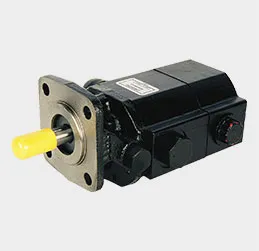Feb . 16, 2025 03:02
Back to list
Oem Die-Cast Aluminium Parts
Die-cast aluminum is a versatile material widely used in various industries due to its unique combination of properties that make it ideal for manufacturing complex and durable components. Its value lies in its ability to meet the high demands of modern engineering while remaining cost-effective. Here's an in-depth look at the properties of die-cast aluminum and why it is such a crucial material in product manufacturing.
From a manufacturing perspective, die-cast aluminum offers unparalleled dimensional accuracy and surface finish. The die-casting process involves forcing molten aluminum into a mold under high pressure, resulting in precise and complex shapes with tight tolerances. This not only minimizes the need for additional machining but also ensures consistent production quality, thereby reducing waste and cost. Moreover, the excellent surface finish of die-cast aluminum allows for a wide range of surface treatments and finishes, enhancing the aesthetic appeal and functionality of the final product. Furthermore, die-cast aluminum demonstrates excellent recyclability, aligning with the growing emphasis on sustainable and environmentally friendly manufacturing practices. Aluminum can be recycled multiple times without losing its intrinsic properties, reducing the reliance on raw material extraction and minimizing the overall environmental footprint. This aspect is increasingly important for companies committed to sustainability and eco-friendly product lifecycles. Despite its many advantages, successful application of die-cast aluminum requires expertise in design and engineering. Engineers must carefully consider the material properties during the design phase to maximize performance and cost efficiency. This involves optimizing wall thickness, ensuring proper inclusion of ribs and gussets for added strength, and accounting for potential thermal expansion in high-heat applications. By leveraging expert knowledge and advanced computer-aided design tools, manufacturers can fully exploit the benefits of die-cast aluminum. In conclusion, die-cast aluminum is a remarkable material characterized by its strength, lightweight nature, thermal and corrosion resistance, dimensional accuracy, and sustainability. These properties make it an invaluable asset in producing efficient, durable, and environmentally-conscious products across a variety of sectors, including automotive, electronics, aerospace, and consumer goods. With ongoing advancements in die-casting techniques and alloy development, the role of die-cast aluminum in shaping the future of manufacturing is set to expand even further.


From a manufacturing perspective, die-cast aluminum offers unparalleled dimensional accuracy and surface finish. The die-casting process involves forcing molten aluminum into a mold under high pressure, resulting in precise and complex shapes with tight tolerances. This not only minimizes the need for additional machining but also ensures consistent production quality, thereby reducing waste and cost. Moreover, the excellent surface finish of die-cast aluminum allows for a wide range of surface treatments and finishes, enhancing the aesthetic appeal and functionality of the final product. Furthermore, die-cast aluminum demonstrates excellent recyclability, aligning with the growing emphasis on sustainable and environmentally friendly manufacturing practices. Aluminum can be recycled multiple times without losing its intrinsic properties, reducing the reliance on raw material extraction and minimizing the overall environmental footprint. This aspect is increasingly important for companies committed to sustainability and eco-friendly product lifecycles. Despite its many advantages, successful application of die-cast aluminum requires expertise in design and engineering. Engineers must carefully consider the material properties during the design phase to maximize performance and cost efficiency. This involves optimizing wall thickness, ensuring proper inclusion of ribs and gussets for added strength, and accounting for potential thermal expansion in high-heat applications. By leveraging expert knowledge and advanced computer-aided design tools, manufacturers can fully exploit the benefits of die-cast aluminum. In conclusion, die-cast aluminum is a remarkable material characterized by its strength, lightweight nature, thermal and corrosion resistance, dimensional accuracy, and sustainability. These properties make it an invaluable asset in producing efficient, durable, and environmentally-conscious products across a variety of sectors, including automotive, electronics, aerospace, and consumer goods. With ongoing advancements in die-casting techniques and alloy development, the role of die-cast aluminum in shaping the future of manufacturing is set to expand even further.
Latest news
-
Precision Sheet Metal Stamping Manufacturer | Fast & ReliableNewsAug.01,2025
-
OEM Sand Cast Pump Valve Fittings - Baoding Hairun Machinery And Equipment Trading Co., Ltd.NewsAug.01,2025
-
Custom OEM Impellers | High Efficiency & PrecisionNewsAug.01,2025
-
OEM Sand Cast Pump Valve Fittings - Baoding Hairun Machinery | Customization, Quality AssuranceNewsAug.01,2025
-
OEM Sand Cast Pump Valve Fittings - Baoding Hairun Machinery And Equipment Trading Co., Ltd.NewsAug.01,2025
-
OEM Sand Cast Pump Valve Fittings - Baoding Hairun Machinery And Equipment Trading Co., Ltd.NewsJul.31,2025
PRODUCTS CATEGORIES















